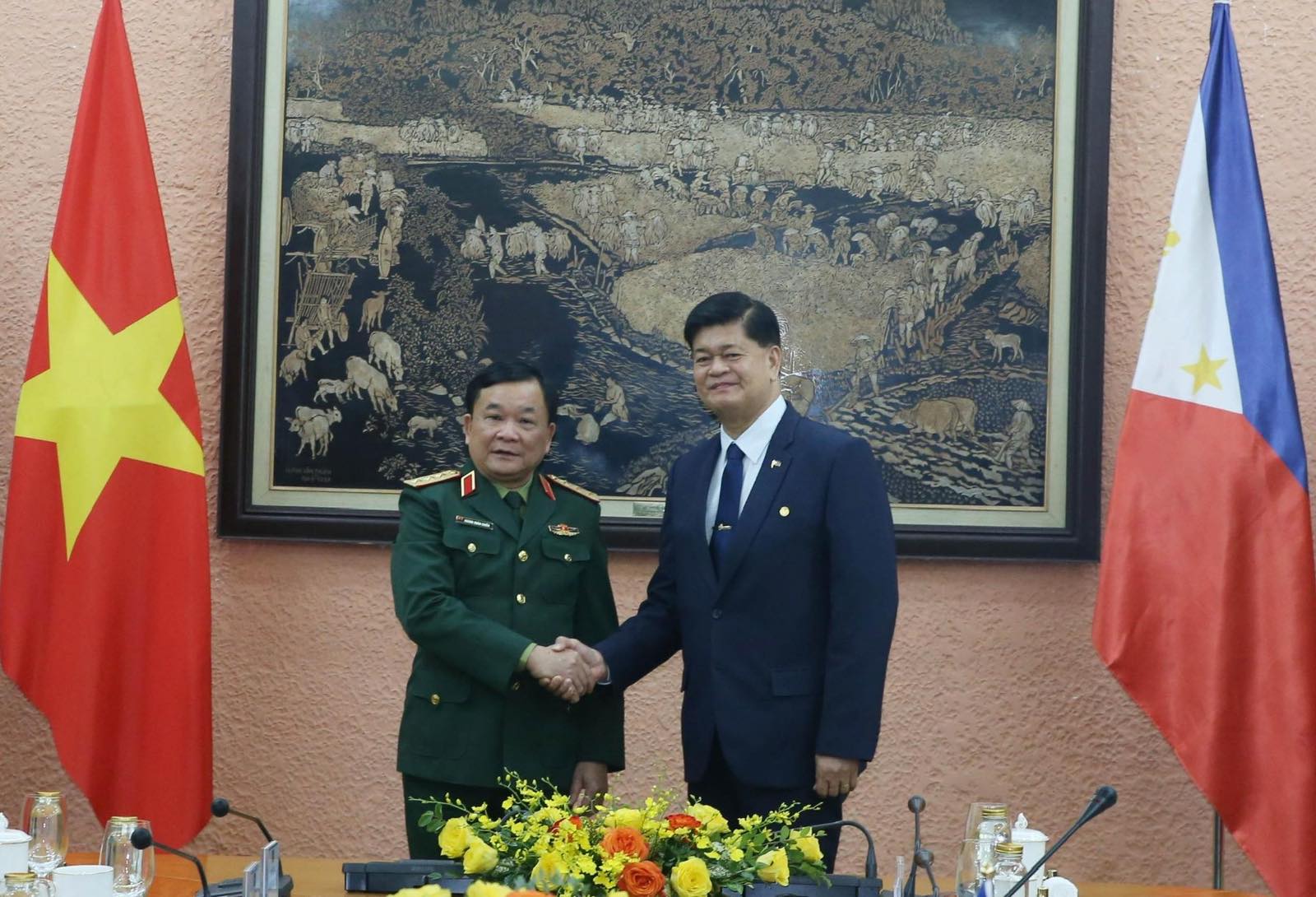PH, Vietnam urge compliance with Unclos in South China Sea

Vietnam’s Deputy Minister of National Defense Lieutenant General Hoang Xuan Chien (left) and Philippines’ Department of National Defense Senior Undersecretary Irineo Espino. Photo from DND
MANILA, Philippines — The Philippines and Vietnam have urged countries to comply with maritime rules based on the United Nations Convention on the Law of the Sea (Unclos) in the South China Sea.
The appeal was made in Hanoi during a defense strategic dialogue between Department of National Defense Senior Undersecretary Irineo Espino and Vietnam’s Deputy Minister of National Defense Lieutenant General Hoang Xuan Chien on November 22.
“The Philippines and Vietnam called on all countries to uphold the rules-based order on the basis of the Unclos to ensure freedom of navigation and overflight, peace, security and stability in the region,” the DND said in a statement Wednesday.
China asserts sovereignty over nearly the entire South China Sea with claims overlapping the exclusive economic zones (EEZ) of Philippines and Vietnam, causing tensions in the region.
READ: Teodoro thanks Vietnam for backing PH position in South China Sea arbitration
Article continues after this advertisementParts of the South China Sea inside the Philippines’ EEZ are locally referred to as the West Philippine Sea while Vietnam refers to the South China Sea as the East Sea.
Due to its actions in the West Philippine Sea, the Philippines brought China before an arbitral tribunal under Annex VII of the Unclos where Manila and Beijing are both signatories.
China, however, rejected the tribunal’s jurisdiction on the case, but Vietnam’s foreign ministry said the tribunal has jurisdiction to settle disputes concerning the interpretation of the Unclos, according to a Vera Files report in 2014.
The DND also said both officials “shared view that the situation in the West Philippine Sea/South China Sea/East Sea is not just a concern of selected countries but the region as well.”
READ: Vietnam rebukes China, PH over South China Sea conduct
“The two officials also recognized the increasing strategic competition among major powers in the region,” the DND noted. “Along this line, both countries reaffirmed the importance of Asean Centrality and recognized that Asean should continue to be a stabilizing factor and platform in promoting regional peace and security.”
Both officials likewise agreed to increase high-level exchange visits, information sharing, education and training exchanges and service-to-service engagements between the Philippines and Vietnam.
“With the ever-changing security environment, the co-chairs agreed to explore cooperation in the areas of maritime and aviation security, defense industry, mutual logistics support, military medicine, counter-terrorism, cyber security, peacekeeping operations, humanitarian assistance and disaster relief and other traditional and non-traditional security concerns,” the DND said.